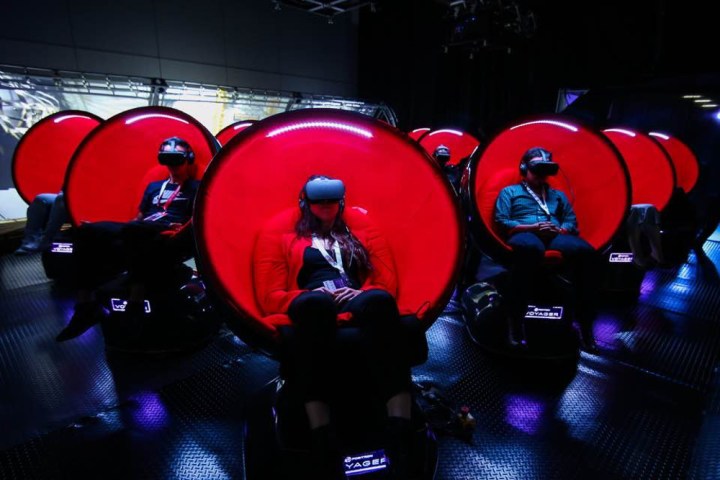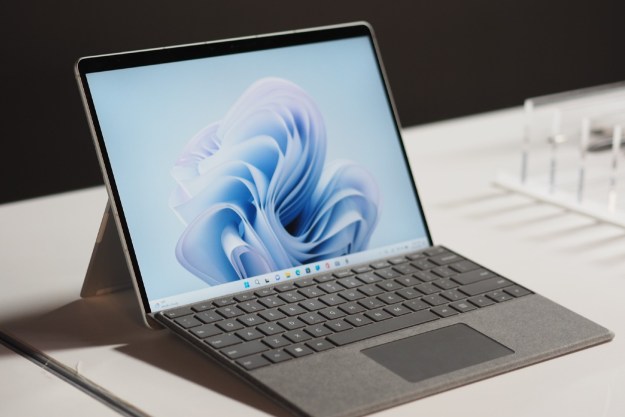
Voyager is intended to offer an unparalleled experience that adds to the immersive quality of VR content. While seated, users can rotate 360 degrees without ever standing up, and can recline through a 35-degree range of motion, according to a report from Road to VR.
The Voyager chair houses a PC capable of running VR content, that features a GTX 1070 GPU. Several different units can be synchronized, so that a group of viewers can enjoy the same content at the same time.
Many VR experiences allow the user to turn their head to look around their environment. The Voyager is designed such that they can do so, while remaining in a comfortable seated position, allowing for longer viewing sessions.
The first generation was present at Sundance 2017, and later used to facilitate the VR experience that accompanied last year’s reboot of The Mummy. This year, Positron brought an upgraded version that was made a VR experience called Space Explorers: A New Dawn all the more immersive.
At Sundance 2018, Positron announced that it had secured $1.4 million in seed funding for the next generation of the Voyager chair, inking deals with Other World Computing and Lazar Ventures. Jennifer Rundell, the company’s chief operating officer and founder, stated that this money will be used to add advanced functionality like six degrees of freedom tracking, scent, wind, and motion tracking.
While hardcore VR enthusiasts might like a Voyager for their living room, Positron’s focus is on public venues like cinemas, hotels, museums, and airports. It can be expensive to build a comprehensive VR setup from scratch, so it’s long been predicted that offering up access to the tech in this manner could be one way to grow the medium as a whole.
Of course, content is still key — without VR experiences that people want to pay for, it’ll be difficult to encourage businesses to make that initial investment in the hardware.


